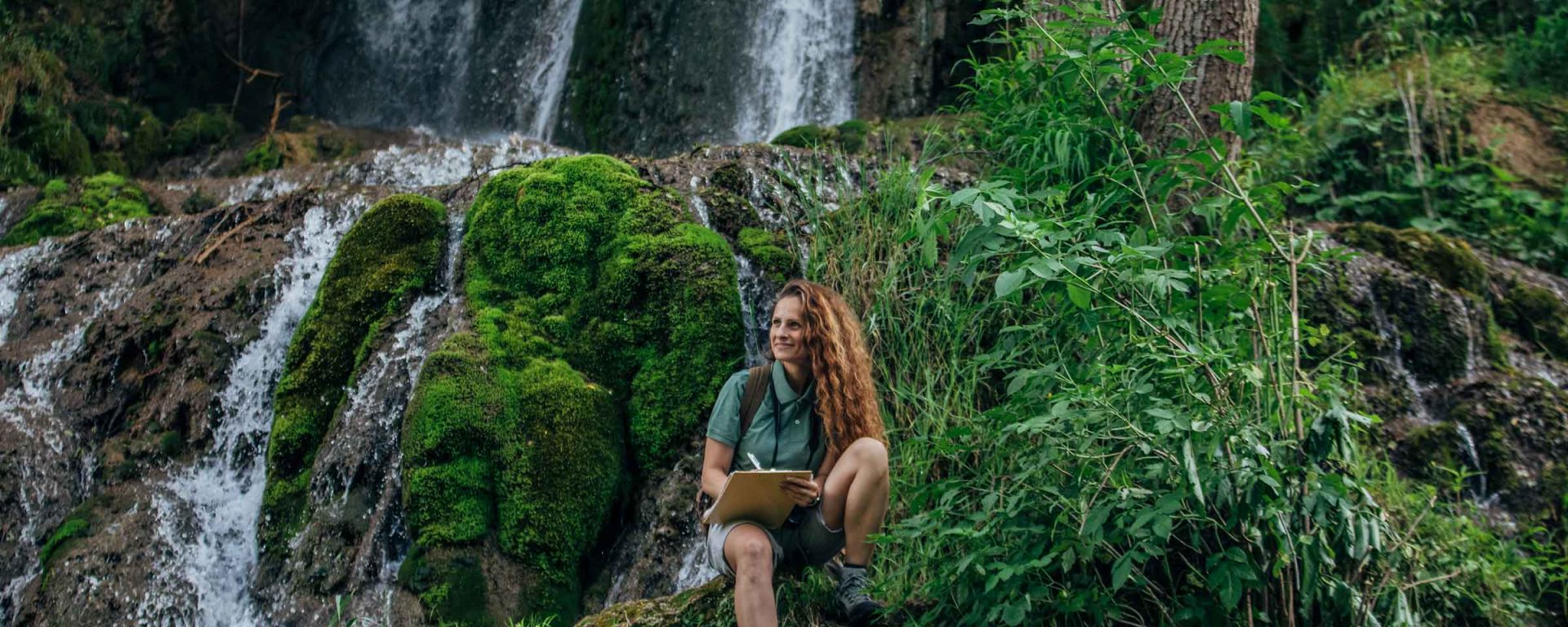Do you have a passion for the natural environment? Want to literally change the world? Wondering what can you do with an environmental science degree that will let you do just that? Whether you want to work outdoors or at a desk, in a museum or with your community, there’s a job in environmental science for you.
And you’re not alone in your desire to protect, sustain and regenerate our amazing planet. In Australia, the government’s Job Outlook figures show more than 23,000 people work as environmental scientists – and they predict future growth in this area of employment over the next five years.
What’s more, where better to start your environmental career than at Australia’s top university for enviro grads getting jobs.
(That’s Charles Sturt University, by the way.)
We even have a graphic to prove it…

Top jobs when you graduate from an environmental science degree
So what can you do with an undergraduate environmental science degree? You might be surprised how many doors this degree can open. Here are just a few of them.
1. Park ranger
Love the idea of working in a state or national park, nature or conservation reserve, or other recreational area? Park rangers control, supervise and manage these beautiful spaces. As a park ranger, you’ll conduct guided tours to help visitors understand and appreciate the natural and cultural features of the park. You’ll also monitor and handle wildlife. Coordinate fire management and pest-control programs. Potentially participate in search and rescue operations. And more (including making sure the park facilities are clean – but hey, someone has to do it!)
2. Fisheries officer
If getting out on the water is where you’re at, being a fisheries officer may get you hooked on studying environmental science. You’ll patrol our waterways, putting a halt to unlawful fishing and also stopping the removal of protected marine life. You’ll also use your great communication skills to educate recreational fishers and promote marine management programs and policies. Your efforts will help conserve and preserve fisheries resources so they are not exploited and don’t become endangered.
3. Natural resource manager
Prefer a balance between outdoor and indoor work? If you have a keen interest in conservation and management of the environment, then a natural resource manager could be a good fit. This role involves developing conservation plans for natural resources, including renewable forests, agricultural farms and water catchments. You could also pursue specialties like pollution control or planning rehabilitation of landscapes after mining activities. Whatever area you work in, you’ll be developing practical solutions for improving the health of ecosystems.
4. Geographic information systems officer
Did you know there’s an environmental science job where you can combine your love for the environment with your love for gadgets? Yep! As a geographic information systems (GIS, for short) officer, you’ll use cutting edge technology to capture and analyse geographical data. You can also engage your computer programming and data analysis skills to support environmental management!
5. Heritage officer
Use your interest in the past, your powers of observation and also your research skills to identify, assess, conserve and interpret places or objects that have cultural heritage value. Become a heritage officer! You could work with the National Trust of Australia, local councils, in the tourism industry or at museums, art galleries or even historic sites, taking care of places and objects valued for their cultural and historical importance. Aboriginal heritage officers specialise in preserving history and culture. So as a custodian of the past, you’ll contribute to a brighter future.
6. Sustainability officer
If you have a heart for the environment and communities, a sustainability officer could be your perfect job in environmental science. You’ll use your strong communication, organisational and project management skills to work with communities to ensure they have a positive environmental, economic and social impact. As you work with policies, programs and people, you’ll help communities to thrive.
How can you make a difference with an environmental science degree?
The scope of what you can do with an environmental science degree is enormous – and jobs in environmental science are crucial for our future.

Matthew Hunt, Course Director of Charles Sturt University’s School of Environmental Sciences, explains.
“Pursuing an environmental science career will enable you to have a positive influence on some of the world’s biggest issues.
“There are exciting and rewarding careers dealing with diverse areas such as climate and sustainability; conservation of unique wildlife and ecosystems; and conserving our natural resources, cultural heritage and protected areas.
“The quality of life on this planet (human and otherwise) is determined by how we manage our environment and resources. Also, how we manage our environment depends on people. As the global population grows and pressure on our finite resources increases, above all, we need our best minds tackling the challenges.”
Choose your environmental science degree
Perhaps it’s not surprising there are so many jobs in environmental science in Australia, given the size of our amazing country. From our coast and the waterways of our rivers and tributaries, through the rainforests and national parks in our hinterlands, to our arid centre – our natural landscapes face challenges like never before. So are you ready to get qualified and get to work? Let’s do this!
Bachelor of Environmental Science and Management1. Choose applied earth science; aquatic ecosystems; climate and sustainability; ecology and conservation; or parks, recreation and heritage.
Bachelor of Geospatial Science – study the relationships between physical locations, people and earth processes.
Bachelor of Science – start with a broad-based science degree, or choose to major in biology or earth sciences.

1CRICOS 103015C


You must be logged in to post a comment.